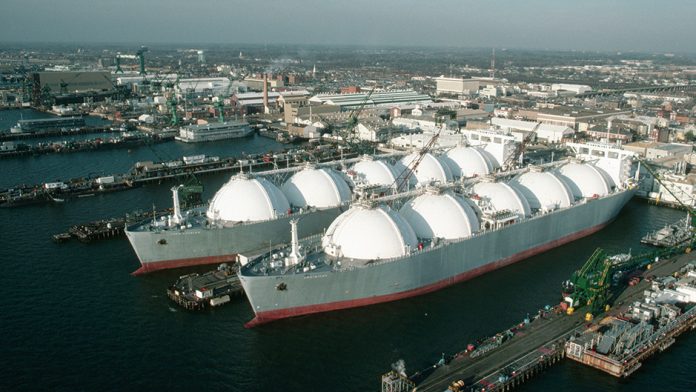The Federal Energy Regulatory Commission (FERC) has approved a new liquified natural gas (LNG) export terminal in Cameron, Louisiana.
The project of Commonwealth LNG was approved by a 5-0 margin by FERC. When construction is completed, it will add to the eight other operating export terminals.
Currently, there are five U.S. export terminals in the Gulf of Mexico, two on the East coast, and one in Alaska.
The new LNG terminal project is the first approved since 2020, and joins the ranks of 15 other projects approved by FERC before the Biden administration took office. Only two of the previously approved projects are currently under construction due to slow regulatory approvals by other agencies. The applications of three other export terminal projects, all on the Gulf coast, are still pending.
Other barriers to the Commonwealth project’s completion remain, principally involving securing financial backing for construction.
‘Rigorous Process’
Commonwealth LNG touts a new method of building LNG terminals, involving modular construction, which will reduce construction time and labor.
In a statement posted on the company’s website, Paul Varello, founder and executive chairman said he was happy with FERC’s approval, which should make the remaining steps in stringent federal review process go more smoothly.
“We’re extremely pleased to have our FERC Order in place,” Varello said. “FERC review and approval is a rigorous process and a huge step in the development of our LNG project.”
Commonwealth LNG will make the final decision to proceed with construction after securing regulatory approvals and financing, said Varello.
“The granting of this Order keeps us on a path for reaching Final Investment Decision (FID) in Q3 of 2023,” Varello said. “With our highly modularized approach, we anticipate starting commercial operation three years later in Q3 of 2026.”
No New Domestic Development
There might still be hurdles to overcome due to the Biden administration’s hostility toward new gas well development domestically, says Thomas Pyle, president of the Institute for Energy Research.
“President Biden is making it harder to supply the gas he is promising to Europe because they won’t allow horizontal drilling and hydraulic fracturing of their own resources,” Pyle said. “His nonstop attacks on the domestic production of energy are a stark contrast to his support for more Venezuelan [and] Middle Eastern[ production], and emergency stocks from the SPR.”
It would be a boon to the United States to continue to sell more gas to our allies in Europe, but if production is not also increased, there may be pain for Americans, and even more reliance on China, Pyle says.
“Promising more exports of U.S. natural gas is a good thing, except that Biden is directing the government to make it harder and more expensive to produce here,” Pyle said. “With less supply and more exports, prices will rise for Americans, making the case for his Green New Deal, which can’t make it without enormous subsidies and mandates and even greater imports from China.
“For some reason, the primary beneficiary of Biden’s policies always seems to be China,” Pyle said.
Linnea Lueken (llueken@heartland.org) is a research fellow with the Arthur B. Robinson Center on Climate and Environmental Policy at The Heartland Institute.
For more on natural gas production and regulation, click here.
For more on LNG exports, click here.
For more on FERC, click here.


























